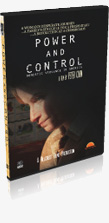The Patriarchy Debate
Ellen Pence looks back on the early days of the Duluth Model as a time when the battered women’s movement was defining the issues related to domestic violence. She compares that period in the early 1980s to the first 100 days of a Presidential term.
But it wasn’t long before opposition emerged to the Duluth ideas, particularly the notion that the fundamental cause of domestic violence is patriarchal cultural values.
Today’s Duluth opponents include a number of prominent social scientists . These academics argue that domestic violence is the result of psychological and social factors. Some argue that exposure to violence in childhood is the major cause of family violence, thus explaining the troubling inter-generational aspect of domestic abuse.
Others point to research which indicates that women initiate violence with the same frequency as men , citing this research as evidence that domestic violence is not gender based.
Of course many academics reject the challenge to the Duluth Model. There is intense ongoing debate about the effectiveness of batterer intervention programs, the role of psychopathology in domestic violence, women’s violence toward men, the impact of mandatory arrest and other flash point issues. Articles defending the Duluth Model against much of the criticism leveled by academic opponents can be found here.
In his own words: Evan Stark (Rutgers University)
“I think we need a law that punishes offenders at the same level that we would punish people that take hostages, or kidnap people, because what we are really dealing with, although the analogy’s by no means perfect, is a kind of domestic terrorism. A kind of domestic hostage taking in which the victim has no outside to escape to because the supposed safe place, the relationship, the home, the family network, has been identified as the point of imprisonment and entrapment.”
Kim’s Story: Her perspective on patriarchy
Kim isn’t quick to look how patriarchal cultural influences may have contributed to her story of domestic abuse. Family violence and sexual assault has shaped her experience for many years. Problems such as her father’s psychological injuries from serving in Vietnam and family alcoholism have played a key role. However, Kim speaks eloquently about the subtle and pervasive contribution of patriarchal values, and of the important impact of Josh’s subtle but persistent efforts to maintain power and control in their marriage.
Partner Profile: Evan Stark
“Power and Control” advisory board member Evan Stark is an activist and professor of social work at Rutgers. He is noted for his expertise in health issues and in legal aspects of domestic violence. His recent book, “Coercive Control,” argues for an expanded view of domestic violence to include the crime of coercive control, which he asserts is a very common and pernicious form of domestic violence.



